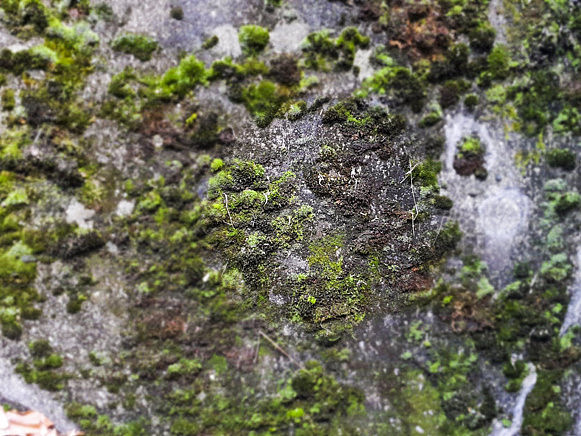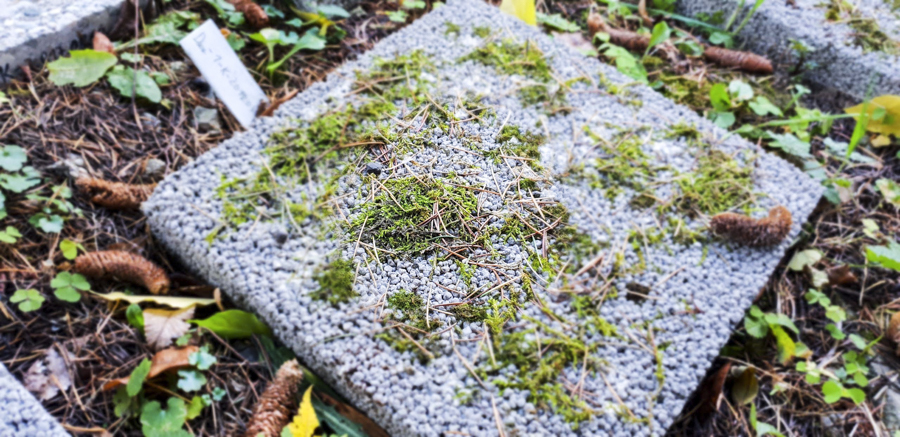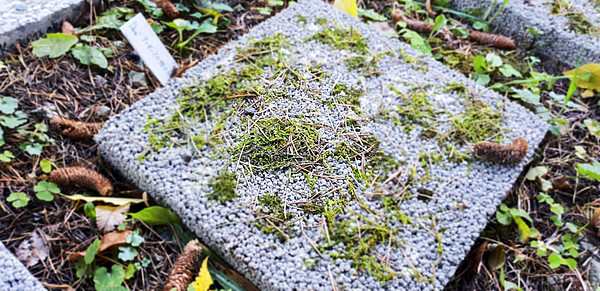Sie sind unliebsam und idyllisch zugleich: Moose. Sie werden gewollt aus so manchem englischen Rasen vernichtet, zugleich werden sie als weicher Gartenfußboden oder gar als grünes Dekormittel eingesetzt. Die Wissenschaft hat aber ein besonderes Interesse an diesen ältesten Landpflanzen der Erde. „Moose haben den positiven Effekt, dass sie Partikel aus der Luft filtern. Wie zum Beispiel Feinstaub, den es in Graz ja zuhauf gibt“, weiß Christian Berg. Der wissenschaftliche Leiter des Botanischen Gartens Graz arbeitet mit KollegInnen von der TU Graz an Lösungen, wie diese Pflanzen praktisch in das Stadtbild integriert werden können und somit aktiv für die Lebensqualität arbeiten. „Stellen Sie sich vor, Sie bepflanzen Ihre Fassade gewollt mit Moos. Machen das viele Bezirke oder gar die ganze Stadt Graz, so könnte das einen wertvollen Beitrag zur Verbesserung der Luftgüte leisten“, betont der Wissenschafter.
Können Moose Feinstaub fressen?
Dazu hat Berg im Mai 2018 mit Joachim Juthart vom Institut für Materialprüfung und Baustofftechnologie der TU Graz acht verschiedene Moosarten auf Betonplatten mit unterschiedlicher Dichte, Porosität und pH-Wert gesetzt, um die Symbiose zwischen Material und Pflanze unter sonnigen und schattigen Bedingungen zu erforschen. Berg und sein Team untersuchen das Wachstumsverhalten der Moose. Erste Ergebnisse sollen Anfang nächsten Jahres vorliegen. Das Projekt soll auch Aufschluss darüber bringen, wie sehr Moose den Baustoff Beton langfristig beeinflussen. Und schließlich auch, wie viel Wasser sie speichern und wie sehr Moosflächen eine spürbare Abkühlung in Städten bringen.
So wächst das Wissen im Botanischen Garten
Im kommenden Jahr feiert der Botanische Garten am Standort Schubertstraße sein 130jähriges Bestehen. Dazu hat die Universität Graz eine Fundraising-Aktion initiiert. In Form von Pflanzenpatenschaften, Kleinspenden und auch Quartier-Patenschaften können sich Interessierte an der Neugestaltung des Wegenetzes im Garten beteiligen. 43 Pflanzen haben bereits ihre PatInnen gefunden. Mehr zum Projekt unter https://lasswissenwachsen.at/


